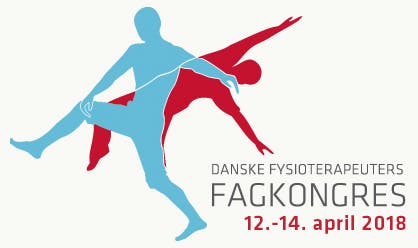When work hurts

Pain is the leading reason for people to ‘fall out’ of the work force. In Denmark low-back pain causes 20% of all health-related retirements (førtidspension), and 1 in 5 of all people with musculoskeletal pain will be absent from work due to pain within a two-year period.
The toll on the individual and their families can be immense and the societal costs in social benefits and lost production in Denmark accumulate to 5 billion DKK yearly. This is contrasted by a contemporary understanding, that most jobs have a neutral effect on pain and a positive effect on quality of life.
Speakers
- Lance McCracken, Professor of Behavioural Medicine, Kings College, London
- Henrik Bjarke Vægter, post-doc, Odense University Hospital and University of Southern Denmark
- Morten Alberg, fysioterapeut, Jobcenter Vesthimmerland, UCN, Professionshøjskolen UC Nordjylland
Presentations
Lance McCracken: Pain and work – Lost in translation?
“I don’t feel quite ready to begin work, just yet” or “first I need to reduce my pain, then I will think about work,” are statements that reflect a passive or avoidant situation and are unlikely to signal immediate engagement in work. Understanding avoidance, barriers to engagement, and ways to enhance motivation may help. To add to existing tools, it may further enhance outcomes if work can be framed as NOT requiring readiness, and as something that is not opposed by pain but can INCLUDE pain. Lance McCracken will present data, relevant concepts, and describe potentially useful methods.
Henrik Bjarke Vægter: What motivates patients with chronic pain to return to work?
Chronic pain has great consequences for the individual, not least on the ability to work. Although previous research has shown that working is beneficial for general well-being, very little research has focused on chronic pain patients’ own perception about work and motivational aspects for a successful return-to-work process. Based on qualitative interviews with chronic pain patients Henrik Vægter will share insights on patients’ own perception about work and motivational aspects for return-to-work to facilitate successful rehabilitation.
Morten Alberg: When the individual’s work participation is challenged - what to do?
Morten Alberg will focus on how physiotherapists can support individuals who are at risk of sick leave and how to facilitate continued work participation through direct interaction with the individual, collaboration between health care and social services. This talk focusses on empirical evidence from extensive work with people who struggle to return to work due to pain, and specific ideas on what physiotherapists can do to facilitate better collaboration between the individual, health professionals and social services in order to get more people, faster back to meaningful work participation.
Moderator: Morten Høgh
Interview med Morten Høgh: Vi skal tænke arbejdet ind som en del af behandlingen
Lance McCracken is also speaking at the congress about 'ACT, Psychological Flexibility, and Treatment for Chronic Pain: Is there a Role of Physiotherapy?'
